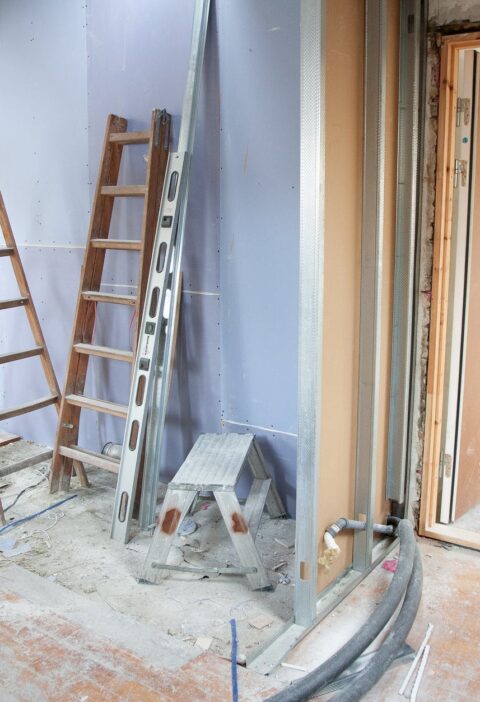There are many causes for power outages, including extreme weather, equipment malfunctions, and planned maintenance. Failure to prepare for such events can result in minor inconveniences or significant risks, such as spoiled food, lack of heating or cooling, and the inability to operate essential medical devices.
Power outages, as stated by the U.S. Department of Energy, have the potential to disturb everyday life, affect the economy, and endanger vulnerable groups. Highlighting the significance of having a thorough preparedness strategy, like home generator installation, to reduce interruptions and guarantee safety during power outages.
Creating a Power Outage Plan
Create a detailed plan tailored to your household’s needs to prepare for power outages. Develop a communication plan to ensure all family members know how to contact each other. Keep contact lists updated with emergency numbers and utility company contacts.
Assign household responsibilities for checking supplies, operating backup power, and caring for pets.
Essential Supplies for Power Outages
Having essential supplies on hand during a power outage is crucial for comfort and safety. Stock up on non-perishable food, bottled water, and basic emergency items like flashlights, batteries, first aid kits, and blankets.
Remember medications and medical supplies with a plan for refrigeration if needed. Stay informed with a battery-operated radio for weather updates and emergency information.
Backup Power Solutions
Portable Generators
Portable generators are widely utilized as emergency power sources, providing electricity to vital equipment during outages. Important factors when selecting a generator include power output, fuel efficiency, and portability.
Various sizes and fuel options are available. To avoid dangers like carbon monoxide poisoning, always follow safety precautions and never use generators indoors or near open windows.
Solar-Powered Options
Solar generators and panels utilize renewable energy from the sun, decreasing reliance on fuel and lessening environmental harm. Benefits include minimal maintenance, quiet operation, and continuous power during outages. They are suitable for small devices and can be integrated into existing electrical systems.
Keeping your electronic devices safe and secure.
Protect electronic devices from voltage fluctuations during power outages by using surge protectors to shield against power surges and unplugging non-essential devices to prevent damage when power is restored.
Staying Safe During a Power Outage
Safety is crucial during power outages. To prevent fire hazards, use flashlights, keep flammable items away from heat, and check smoke detectors. Avoid carbon monoxide poisoning by using generators outside and installing detectors.
Stay warm with alternative heating methods like battery-operated heaters, but ventilate properly. Prioritize safety to protect your home and loved ones during emergencies.
Involving the Community
Your community can be a valuable resource during power outages. Establish connections with neighbors and local groups to share information and resources. Community-based support systems and local emergency services can provide additional assistance and ensure that vulnerable individuals receive the needed help.
Knowing your neighbors and working together can create a more robust support network, particularly during extended outages or large-scale emergencies.
Post-Outage Considerations
After restoring electricity, inspect the home and appliances for damage. Look for signs of electrical issues like flickering lights or scorch marks. Contact the electrician if needed. Restock emergency supplies and food for future outages.
Update outage plan based on experience. Report issues to authorities, utility companies, or emergency services for assistance. Reporting problems improve response efforts and infrastructure, enhancing community readiness for future events.







